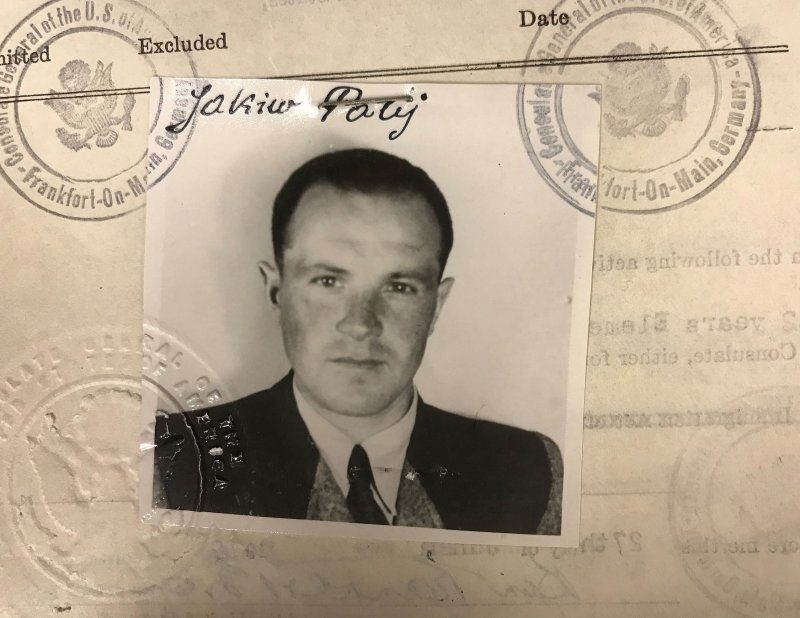A visa photo from 1949 shows Jakiw Palij, a man U.S. officials say lied to U.S. immigration about his role in Nazi war crimes. The 95-year-old died in a nursing home in Germany after being deported from the United states last year. File Photo courtesy of the U.S. Department of Justice |
License Photo
Jan. 10 (UPI) -- A former Nazi concentration camp guard who was deported from the United States last year died in Germany, officials said Thursday.
German media quoted officials saying Jakiw Palij, 95, died in a nursing home in the town of Ahlen, USA Today reported.
Palij was trained by the SS in the Trawniki concentration camp in southeastern Nazi-occupied Poland in 1941 and went on to be one of the so-called "Trawniki men" who participated in the Holocaust as guards in the Belzec, Sobibor and Treblinka concentration camps.
During World War II Palij served as an armed guard at a death camp in Nazi-occupied Poland.
He emigrated to the United States as a war refugee in 1949 and later became a naturalized citizen in 1957.
The Justice Department's Office of Special Investigation tracked him down as part of an operation to seek out Nazi collaborators who hid their actions when emigrating to the United States, and his citizenship was revoked by a federal judge in 2003 based on his wartime activities.
Palij said he "was never a collaborator" with the Nazis, adding he was forced into service and didn't participate in any killings during the war.
He was believed to be the last known Nazi collaborator living in the United States until U.S. Immigration and Customs Enforcement agents removed him from his home in August.
In 2011, protesters began demonstrating at his New York City-area home, and state lawmakers later urged President Donald Trump to force Palij's deportation.
Germany had long refused to accept Palij due to his lack of German citizenship, but U.S. Ambassador to Germany Richard Grenell said newer Berlin officials understood it was a "moral obligation" to accept Palij because he "served in the name of the former German government."















